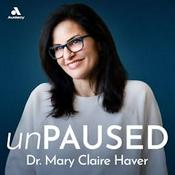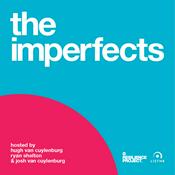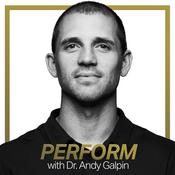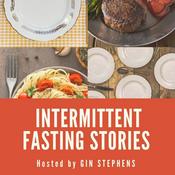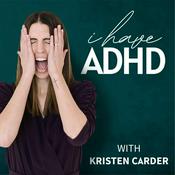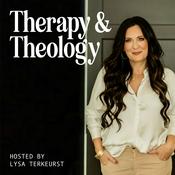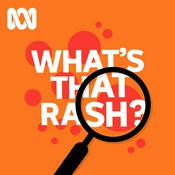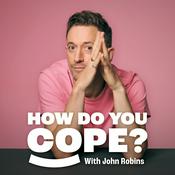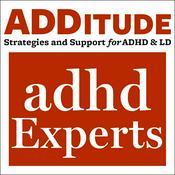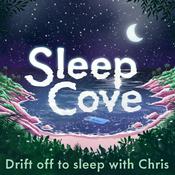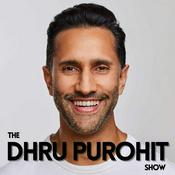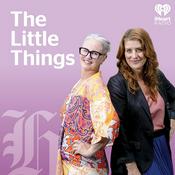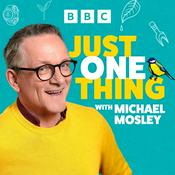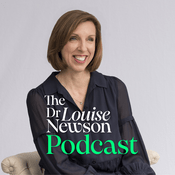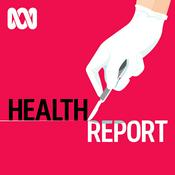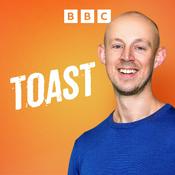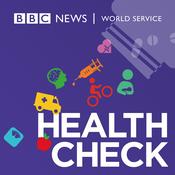104 episodes

Exploring the Complex Interplay Between Thyroid, the Immune System and Fat Mass with Rachel Arthur
27/7/2023 | 57 mins.
*The information in this podcast is intended for Healthcare Practitioners. In this much-anticipated edition, we are joined by the renowned diagnostics educator and experienced naturopath, Rachel Arthur. Together with our host, Nathan Rose, they delve into the fascinating world of the thyroid gland and its interconnectedness with other crucial signalling factors such as leptin, hormones, and fat mass. Prepare to have your understanding of thyroid research reframed as they explore why attributing fat gain solely to the thyroid might not be the full story. Get ready for a captivating discussion on how excessive adipose tissue can lead to disruptions in thyroid function and the influence of macrophage types on endocrine balance. Rachel's remarkable ability to present complex concepts with her insightful analogies promises to make this episode both clinically relevant and entertaining! Highlights: 15:36 minutes - Why increasing T3 isn’t the holy grail for fat mass. 20:31 minutes - Excess energy intake can be the greatest disruptor of gland architecture. 30:50 minutes - The role of fat mass and macrophages in thyroid function. 36:00 minutes - How inflammation and macrophage type can alter fat gain. *Useful Links: * https://rachelarthur.com.au/ https://rachelarthur.com.au/mastercourse-ii-thyroid-adrenal-diagnostics/

How Immersion Can Improve Your Mood, Energy and Performance with Dr Paul J. Zak
20/6/2023 | 58 mins.
*The information in this podcast is intended for Healthcare Practitioners. What if you could measure and improve your emotional fitness with an inexpensive wearable device and a free app? In this episode, we talk to Dr Paul Zak, a pioneer in the neuroscience of immersion and happiness, who has developed a groundbreaking technology that can do just that. In this episode, you will learn: • What is immersion and why is it important for our well-being and performance? • How does immersion relate to dopamine and oxytocin, two key neurotransmitters that regulate our attention and emotions? • How can you use Dr Zak’s technology to measure your immersion and psychological safety, and prevent or manage low mood and low energy? Dr Paul Zak has spent the past two decades searching for signals within the brain to predict what brain’s value and if people will take action. This quest has resulted in discovering neuroscience that uncovered keys to happiness and joy, and more recently, potential clinical benefits in predicting low mood and burnout. In this episode, Paul describes his mapping of what he has dubbed ‘immersion’ – a unique neurological state of engagement that has tremendous predictive power and emerging clinical utility. Don’t miss this fascinating conversation with Dr Paul Zak, who will share his insights and stories from his decades of research on the brain and happiness. Subscribe to the Metagenics Institute Podcast today and get ready to be immersed in the science of immersion. Useful links: • Merritt SH, Krouse M, Alogaily RS, Zak PJ. Continuous Neurophysiologic Data Accurately Predict Mood and Energy in the Elderly. Brain Sci. 2022;12(9):1240. Published 2022 Sep 14. doi:10.3390/brainsci12091240 (https://pubmed.ncbi.nlm.nih.gov/36138976/) • Immersion: The Science of the Extraordinary and the Source of Happiness (https://www.amazon.com.au/Immersion-Science-Extraordinary-Source-Happiness/dp/1544531958) • Launch of Tuesday App (https://besttuesdayever.com/)

How bone hormones shape our health and longevity with Prof Gerard Karsently
30/5/2023 | 40 mins.
Bone is not just a passive scaffold that supports our body. It is also an active endocrine organ that secretes hormones that regulate various aspects of our physiology, from energy metabolism to brain function. One of these hormones is osteocalcin, which has been extensively studied by Gerard Karsently and his team at Columbia University. In this podcast, we will explore the fascinating discoveries that Karsently and his colleagues have made about osteocalcin and its role in health and disease. Osteocalcin is a protein that is produced by bone cells called osteoblasts. It is then released into the bloodstream, where it can reach different organs and tissues and exert its effects. Osteocalcin has been shown to enhance insulin secretion by the pancreas, testosterone production by the testes, muscle function during exercise, memory formation and mood regulation by the brain, and even the ability to cope with stress. Osteocalcin also has anti-aging properties, as it can prevent or reverse some of the decline in physiological functions that occurs with age. The levels of osteocalcin in the blood are not constant. They vary depending on several factors, such as diet, exercise, stress and age. These interactions create a complex network of communication between bone and other organs that helps to maintain homeostasis and adapt to changing conditions. Karsently's research has opened new avenues for understanding the biology of bone and its impact on whole-body physiology. It has also revealed new potential therapeutic targets or strategies for treating or preventing various metabolic, reproductive, cognitive and emotional disorders. In this podcast, we will dive deeper into the fascinating world of osteocalcin and bone endocrinology with Gerard Karsently himself. Useful Links: Berger JM, Karsenty G. Osteocalcin and the physiology of danger. FEBS Lett. 2022;596(5):665-680. doi:10.1002/1873-3468.1425

The Sunny Side of Health: How Sun Exposure Can Prevent Chronic Diseases with Prof Prue Hart
08/5/2023 | 51 mins.
The information in this podcast is intended for Healthcare Practitioners. Sun exposure has been valued for its healing properties throughout history and across cultures. But too much of a good thing can be harmful, and in recent decades we have been warned about the risks of sunburn, skin ageing and skin cancer. However, our guest expert today argues that we may have gone too far in avoiding the sun, and that we are missing out on its vital benefits for our health and well-being. Prof Prue Hart is a photoimmunologist who has been studying the effects of vitamin D and ultraviolet radiation (UVR) on health and disease for over 20 years. She has found evidence that insufficient sun exposure is linked to increased mortality and various chronic conditions, such as some cancers, cardiovascular disease and neurological disorders. Moreover, she has discovered that these benefits are not only due to vitamin D production, but also to other molecules that are activated by UVR, such as nitric oxide and urocanic acid. In this podcast, Prof Hart will explain how these molecules work in our body, and how they can help us prevent or treat diseases such as COVID-19 and multiple sclerosis. She will also share some practical tips on how to balance sun exposure and protect our skin health. Join us for this enlightening conversation on the sunny side of health. Links: Alfredsson L, Armstrong BK, Butterfield DA, et al. Insufficient Sun Exposure Has Become a Real Public Health Problem. Int J Environ Res Public Health. 2020;17(14):5014. Published 2020 Jul 13. doi:10.3390/ijerph17145014 Hart PH, Norval M. The Multiple Roles of Urocanic Acid in Health and Disease. J Invest Dermatol. 2021;141(3):496-502. doi:10.1016/j.jid.2020.07.017

What You Need to Know About POTS: A Neurologist’s Perspective – Dr Brent Goodman
17/4/2023 | 58 mins.
The information in this podcast is intended for Healthcare Practitioners. Do you know what POTS is? It’s a chronic disorder that affects many young women. It causes problems with the autonomic nervous system, which controls the heart rate and other functions. People with POTS experience a rapid increase in heart rate, dizziness, fatigue, nausea and other symptoms when they stand up. POTS is poorly understood and has few effective treatments. However, some dedicated clinicians are working hard to find solutions and help patients. One of them is Dr Brent Goodman, a neurologist and director of the Autonomic Laboratory & Clinic at the Mayo Clinic in Scotsdale, Arizona. He is also on the Medical Advisory Board for Dysautonomia International. In this episode, you will learn: · How POTS was discovered and how it affects the body · What are some of the possible causes of POTS, such as viral infection, physical trauma, autoimmunity and cardiovascular dysfunction · How POTS is related to other conditions, such as migraine, chronic fatigue, mast cell activation syndrome (MCAS) and hypermobile Ehlers-Danlos syndrome (hEDS) · What are some of the current treatment options for POTS, especially through diet and lifestyle changes · What are some of the emerging therapies for POTS and what are the challenges and opportunities for future research This podcast is essential for anyone who wants to understand POTS and dysautonomia better and help their patients cope with this debilitating disorder. *Links: * Vernino S, Bourne KM, Stiles LE, et al. Postural orthostatic tachycardia syndrome (POTS): State of the science and clinical care from a 2019 National Institutes of Health Expert Consensus Meeting - Part 1. Auton Neurosci. 2021;235:102828. (https://pubmed.ncbi.nlm.nih.gov/34144933/) Raj SR, Bourne KM, Stiles LE, et al. Postural orthostatic tachycardia syndrome (POTS): Priorities for POTS care and research from a 2019 National Institutes of Health Expert Consensus Meeting - Part 2. Auton Neurosci. 2021;235:102836. (https://pubmed.ncbi.nlm.nih.gov/34246578/) http://www.dysautonomiainternational.org/index.php
More Health & Wellness podcasts
Trending Health & Wellness podcasts
About Metagenics Institute Podcast
Listen to Metagenics Institute Podcast, unPAUSED with Dr. Mary Claire Haver and many other podcasts from around the world with the radio.net app
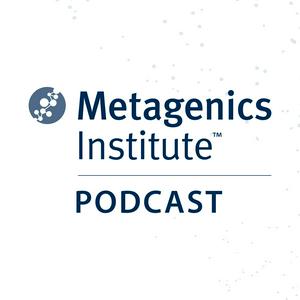
Get the free radio.net app
- Stations and podcasts to bookmark
- Stream via Wi-Fi or Bluetooth
- Supports Carplay & Android Auto
- Many other app features
Get the free radio.net app
- Stations and podcasts to bookmark
- Stream via Wi-Fi or Bluetooth
- Supports Carplay & Android Auto
- Many other app features


Metagenics Institute Podcast
download the app,
start listening.
